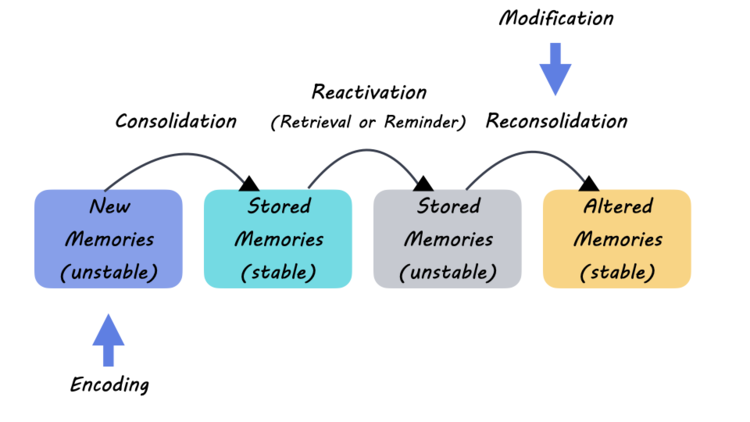
Memory Formation Techniques: Harvard’s Breakthrough Insight
Memory formation techniques are essential tools that enhance our understanding of how memories are created and retained within the brain. Recent innovations in this field, such as the groundbreaking EPSILON method developed by Harvard researchers, have opened new avenues for exploring the molecular underpinnings of learning and memory. By shedding light on complex processes like synaptic plasticity and neuronal communication, these techniques promise to inform dementia treatments and improve cognitive function. Through the mapping of synapses and the intricate dynamics of protein behavior, scientists can better understand how memories are formed and stored. As we delve deeper into these methods, the potential for enhancing our memory capabilities and developing targeted therapies becomes increasingly tangible.
When we talk about techniques to enhance the formation of memories, we refer to a variety of strategies aimed at improving learning efficacy. These strategies encompass a range of innovative approaches to understanding memory architecture and how neurons interact within the brain’s intricate web. By utilizing advanced imaging techniques and novel methodologies, researchers are becoming more adept at mapping out the synaptic connections that underlie our learning processes. Such approaches not only contribute to our comprehension of cognitive functions but also pave the way for breakthroughs in treating conditions like Alzheimer’s disease. The exploration of synaptic behavior and memory encoding plays a crucial role in the ongoing quest to aid those affected by memory-related disorders.
The Significance of Memory Formation Techniques
Memory formation techniques are pivotal for understanding how the brain encodes, stores, and retrieves information. Recent advancements, particularly those related to synaptic plasticity, have shed light on the molecular processes that underlie memory creation. These techniques not only hold promise for academic research in neuroscience but also pave the way for practical applications in deciphering cognitive disorders like Alzheimer’s and other forms of dementia.
Innovative approaches such as the Extracellular Protein Surface Labeling in Neurons (EPSILON) have revolutionized our grasp on neuronal communication and memory mapping. By allowing researchers to visualize synaptic connections and their modifications during learning, these techniques enhance our understanding of how memories are formed and maintained in the human brain. Exploring such methods could spark new therapies aimed at treating memory impairments associated with dementia.
Frequently Asked Questions
What are some effective memory formation techniques that utilize synaptic plasticity?
Memory formation techniques that leverage synaptic plasticity involve methods that enhance the brain’s ability to strengthen and adapt neural connections. Techniques like spaced repetition, where information is reviewed over increasing intervals, and active recall, which involves testing oneself on the material, can effectively support memory formation by promoting synaptic strengthening.
How does memory mapping relate to learning and memory formation?
Memory mapping is a technique that involves creating visual representations of how memories are formed and connected within the brain. It connects to learning and memory formation by illustrating the neural pathways activated during learning processes, allowing researchers to understand synaptic plasticity and how different memories are stored and retrieved.
What role does neuronal communication play in memory formation techniques?
Neuronal communication is central to memory formation techniques as it facilitates the transmission of signals across synapses. Effective memory strategies often enhance this communication by informing the brain’s network about which synaptic connections to strengthen or weaken, ultimately supporting learning and the retention of information.
Can memory formation techniques help in dementia treatments?
Yes, certain memory formation techniques can aid in dementia treatments. Research on synaptic plasticity and neuronal communication highlights how cognitive training exercises and memory aids can stimulate the brain, potentially improving memory retention and slowing the progression of memory-related diseases like dementia.
What advances in synaptic plasticity research can inform new memory formation techniques?
Advances in synaptic plasticity research, such as techniques like EPSILON for mapping synaptic behavior, inform new memory formation techniques by revealing how the brain’s neural networks adapt during learning processes. This knowledge can lead to the development of targeted cognitive exercises that enhance memory formation.
| Key Point | Details |
|---|---|
| Groundbreaking Technique | Harvard researchers developed a method called EPSILON to map learning and memory formation at molecular levels. |
| Significance for Neurological Disorders | EPSILON may provide insights for new treatments for conditions such as dementia and Alzheimer’s. |
| Role of Synaptic Plasticity | Synaptic plasticity allows the brain to strengthen or weaken synaptic connections, facilitating memory. |
| Technique Details | EPSILON utilizes fluorescent labeling and advanced microscopy to monitor proteins like AMPARs involved in memory formation. |
| Research Applications | The method has been applied in studies like contextual fear conditioning in mice to understand memory traces. |
| Future Implications | EPSILON’s potential applications could enhance therapeutic approaches for memory disorders and expand cognitive research. |
Summary
Memory formation techniques are crucial for understanding how we learn and retain information. The recent development of the EPSILON method by Harvard researchers is a groundbreaking advancement in this field, allowing unprecedented observation of synaptic activity and plasticity. As researchers explore these techniques further, we can expect to see significant improvements in therapies aimed at helping individuals with memory-related disorders.
You may also like
Archives
Calendar
| M | T | W | T | F | S | S |
|---|---|---|---|---|---|---|
| 1 | ||||||
| 2 | 3 | 4 | 5 | 6 | 7 | 8 |
| 9 | 10 | 11 | 12 | 13 | 14 | 15 |
| 16 | 17 | 18 | 19 | 20 | 21 | 22 |
| 23 | 24 | 25 | 26 | 27 | 28 | |